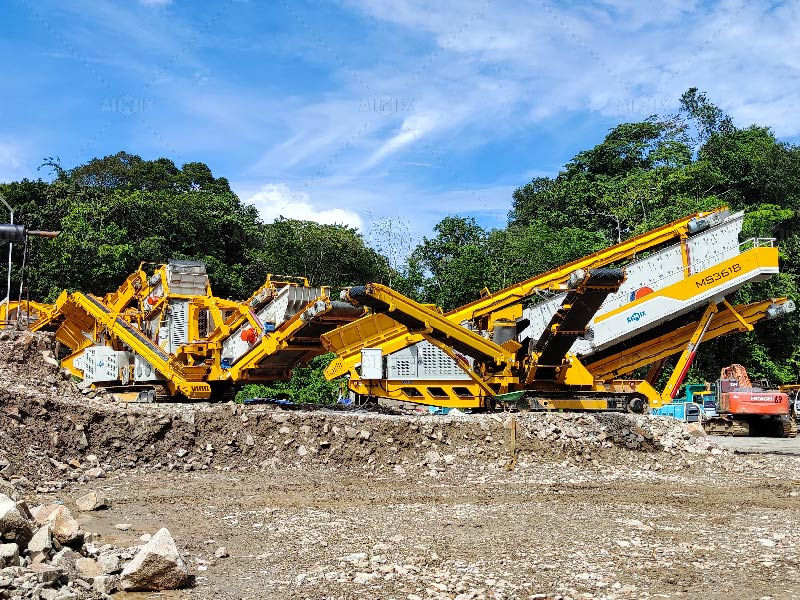Factors Affecting the Pricing of Aggregate Production Equipment
- info515452
- 2月16日
- 讀畢需時 3 分鐘
The cost of aggregate production equipment varies widely depending on factors such as capacity, material quality, and technological advancements. Whether investing in an aggregate plant(planta de agregados), a mobile stone crushing plant, or a debris crusher, understanding the key price determinants can help businesses optimize their investments.

Equipment Type and Functionality
1. Type of Aggregate Equipment
Aggregate production involves several types of machinery, each with distinct pricing based on its role in the process.
Crushers: These include jaw crushers, cone crushers, impact crushers, and debris crushers. The price depends on crushing efficiency, output capacity, and wear resistance.
Screening Equipment: Machines used to separate aggregate by size vary in cost depending on screen mesh quality and deck number.
Conveyors and Feeders: Costs vary depending on belt material, length, and motor power.
2. Fixed vs. Mobile Equipment
The choice between stationary and mobile solutions impacts pricing.
Stationary aggregate plants have lower per-ton production costs but require significant infrastructure investment.
Mobile stone crushing plants(Planta movil de trituracion) offer flexibility and ease of relocation but often cost more due to added mobility features.
Production Capacity and Output
1. Processing Capacity
The production capacity of an aggregate plant affects its price significantly.
Higher-capacity equipment (500–1,000 tons per hour) is more expensive due to stronger materials and larger components.
Smaller crushers and screens for limited output needs have lower costs but may not be scalable.
2. Scalability and Customization
Many manufacturers offer customized solutions, which can impact pricing:
Customizable plants with modular components for easy expansion often have a higher price.
Basic, single-use systems are cheaper but may not allow future upgrades.
Raw Materials and Manufacturing Costs
1. Material Quality
The durability and efficiency of aggregate equipment depend on the materials used in manufacturing.
High-grade steel, reinforced structures, and wear-resistant parts increase costs but extend equipment lifespan.
Cheaper materials reduce initial expenses but lead to higher maintenance and replacement costs.
2. Manufacturing Location
Where a machine is produced affects pricing due to labor and production costs.
European and American-made machinery often costs more due to stringent quality standards.
Asian manufacturers may offer lower prices but may have variations in quality and after-sales support.
Technology and Automation
1. Level of Automation
Automation can significantly impact aggregate equipment pricing.
Fully automated aggregate plants with digital controls and AI-powered monitoring systems increase efficiency but come at a higher cost.
Manual and semi-automated systems are more affordable but require more labor for operation.
2. Energy Efficiency and Smart Features
Energy-efficient designs with low fuel consumption can be costly upfront but save money in the long run.
Advanced monitoring systems that track performance and maintenance schedules increase the initial investment but improve operational reliability.
Operational and Maintenance Costs
1. Spare Parts and Maintenance
Equipment requiring proprietary parts tends to have higher long-term costs.
Machines with easily accessible, universal spare parts are more economical to maintain.
2. Durability and Longevity
Heavy-duty debris crushers(trituradora de escombros precio) designed for extreme conditions cost more but last longer.
Budget-friendly models may save money initially but require frequent replacements.
Market Demand and Supply Chain Factors
1. Brand and Manufacturer Reputation
Premium brands charge more for reliability, customer support, and warranties.
Lesser-known manufacturers may offer lower prices but limited after-sales service.
2. Shipping and Logistics
Large stationary plants involve high transportation and setup costs.
Compact mobile stone crushing plants have lower shipping expenses but may still require site preparation.
Conclusion
The pricing of aggregate production equipment is influenced by multiple factors, including equipment type, production capacity, material quality, and automation level. Investing in the right aggregate plant, mobile stone crushing plant, or debris crusher requires balancing cost with long-term operational efficiency. By considering these elements, businesses can select equipment that meets their production needs while staying within budget.






留言